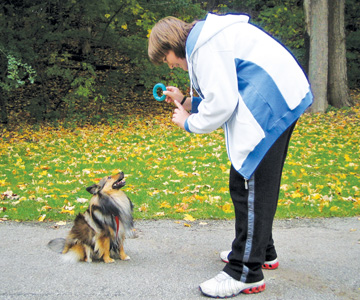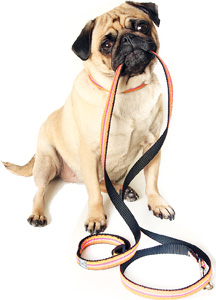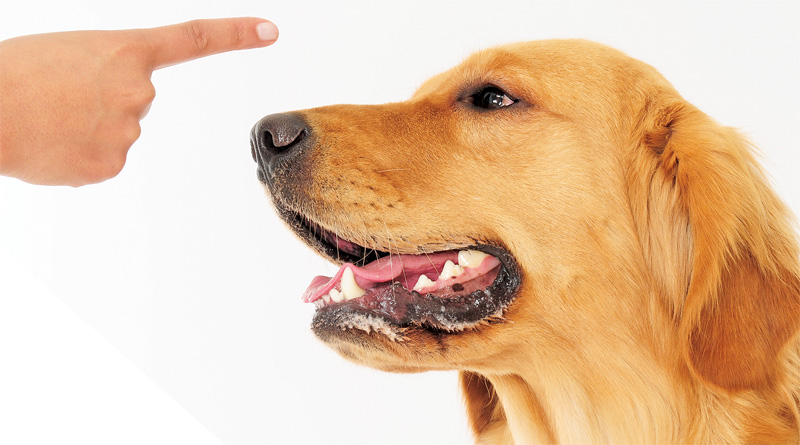1. Timing, timing, timing!
A good dog trainer understands that dogs have a two second ‘association period’ within which they associate an act to a reward or a punishment – if you reward a dog after the two seconds, it just won’t connect the reward with the act. This is especially so when you are teaching a command. For example, you ask your dog to sit and you manually push him into position to teach him. By the time you reach into your pocket for the treat and give it to him, the moment has already passed. If by then he stands up, he will connect the treat to standing and not sitting. At this rate, he will learn to sit after very long – if at all.
Dogs, unlike kids, don’t have the power of reasoning. It’s easier to explain consequences of good and bad behaviour to a child because children have the power of reasoning; you can tell a child to be good and when you get home you will reward the good behaviour with a chocolate. But you can’t do that with a dog – he has no concept of future rewards. For him, the reward must be immediate.
 This is why it’s fruitless to scold a dog hours after he has been naughty – he doesn’t connect the act of being naughty with your punishment, all he learns is that you have a nasty temper.
This is why it’s fruitless to scold a dog hours after he has been naughty – he doesn’t connect the act of being naughty with your punishment, all he learns is that you have a nasty temper.
2. No gain with pain
Never try hitting a dog when training; not only does it hurt, but the pain also causes your dog to fear you and get put off with the training. Over a period of time, the dog loses trust in his owner because he connects the owner to the pain. With kinder methods of training now prevalent, hitting is a thing of the past.
3. Patience
As any parent would tell you, raising children requires oodles of patience and the same goes for our canine family members. Don’t expect your dog to immediately understand what you are saying – no matter how clever you think he is. When you train your dog, there will be days when your dog learns quickly and then there will be days when he is impossible to teach and behaves as if he’s forgotten all his training. It happens. The best of trainers experience this problem. But they don’t give up. So hang in there and have faith in your dog and I promise you will see a change.
4. Humour
Along with patience, a sense of humour is very necessary when training dogs. Not only will it make the training session more fun, but the dog is also more likely to obey you if you are cheerful – not if you are in a bad mood. In fact, top trainers wont train dogs on days when they are in a bad mood. Dogs are great at clowning around; don’t get all vexed when this happens, just laugh it off and try again. Dogs, like children, are sensitive to our moods and are quick to associate the training with negative vibes.
5. Humility
A clever person once said, “If you think you’re a person of influence try ordering someone else’s dog around.” Dogs don’t care for status and wealth. You may be a glamorous movie star or a dowdy librarian – a dog will treat you with humility and will expect the same from you. Even the great ruler Napoleon wasn’t spared – he was attacked and bitten by his wife’s Pug on their marriage night!
So if your dog doesn’t obey you when you’re showing off your trainer skills to the neighborhood, don’t drag him home for a scolding. Retrospect and you’ll probably realise that in your over confidence, your commands were not very clear to the animal. When you are overconfident, you tend to be blind to the small details and clues, which attune you to your dog.
- The Dark Side Of Pampered Pets: Is Your Kindness Harming Your Dog? - 16 March2024
- Kids And Preventing Dog Bites - 18 March2023
- Ordinary Dogs With Extraordinary Jobs - 13 August2022
